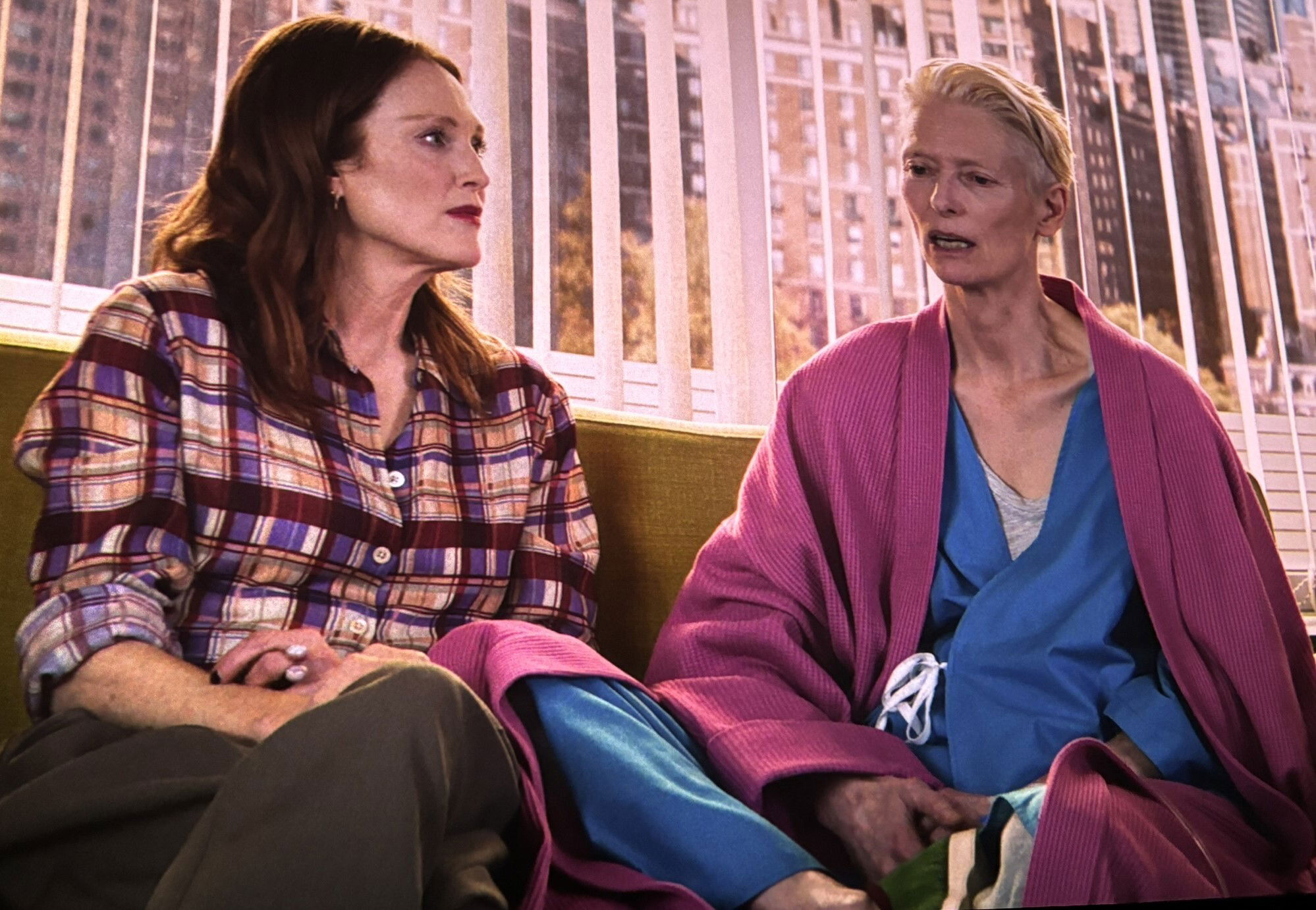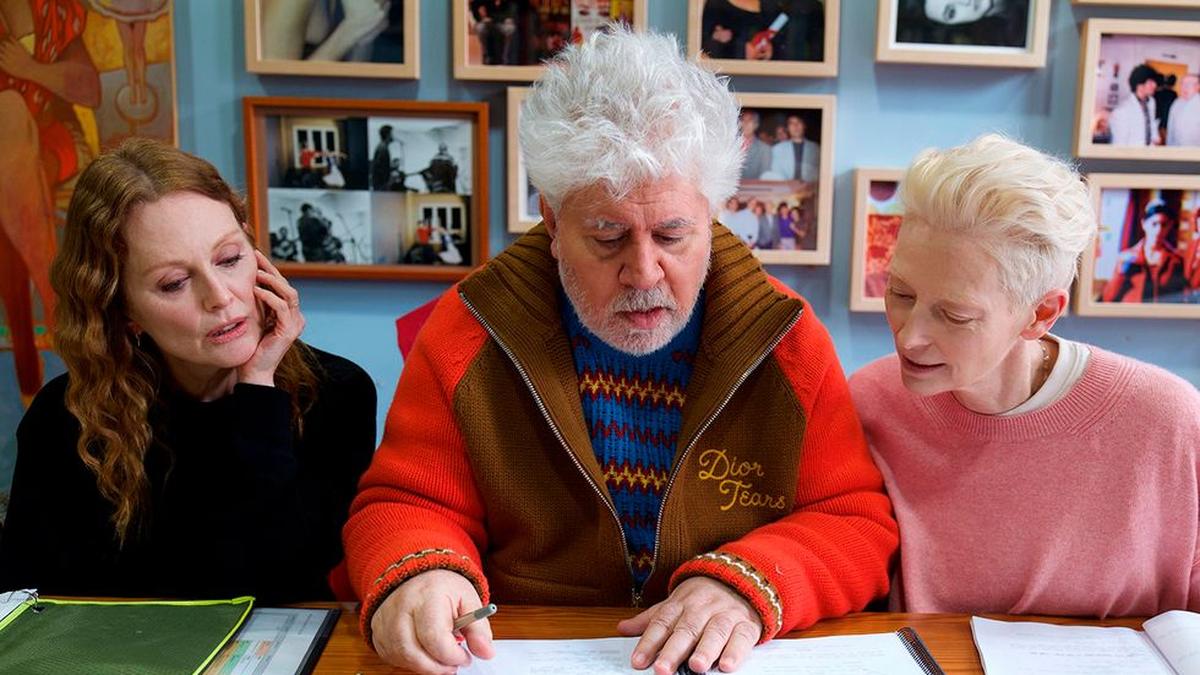“The Room Next Door” – Another Almodovar Magic on Screen

Pedro Almodovar, the Spanish filmmaker has always been the darling of film festival buffs. His films have drawn a cult following over the years and are often known for depicting bold themes, offbeat characters, fluid gender identities and subtle humour alongside complex narratives. He is an auteur who has tried different genres like psychological thrillers, rom-coms, sexual/dark comedies, family/melodramas, etc. As part of IFFI 2024, I had the fortune to watch his latest outing, “The Room Next Door”, based on the novel “What Are You Going Through” by Sigrid Nunez. “The Room Next Door” is Almodovar’s first English-language full-length film and to be honest, it exceeded my expectations.

The film has plentiful references to many authors and texts and it traces the bond between two women named Ingrid Parker (essayed by Julianne Moore), a popular author and Martha Hunt (played by Tilda Swinton) a retired war correspondent, an old friend of Ingrid dying of cancer. Once, they dated the same man (Damian Cunningham played by John Turturro) but later parted ways. As the film opens, Ingrid comes to know about Martha and her disease. She goes and meets Martha in her private hospital room. The two women immerse themselves in their pasts, sharing memories, anecdotes, thoughts about art and movies and soon, the audience also gets a glimpse of Martha’s past and we get to know about her early affair, pregnancy, break-up, experiences as a correspondent and the attitude of her estranged daughter. The rekindled friendship with Ingrid makes Martha bold and she turns more optimistic. The scenario changes quickly and Martha realizes that she is not going to live more than a month. Ingrid’s company bolsters Martha to ask a favour as she intends to spend one last peaceful weekend in a rented house in the country and then self-euthanize with a special pill. Martha requests Ingrid to be in the next room while she embraces the inevitable and also to tell the cops that she knew nothing of her intentions.

From that moment onwards, the film turns poetic especially with the shadow of death looming, thus adding richness to the narrative. It is quite amazing to see how Almodovar has infused humour even in dire situations. He builds thrill, suspense and even a surprise in the narrative. There are ample references to Virginia Woolf, her works and the line from the suicide note, “So I am doing what seems the best thing to do”. James Joyce, Martha Ellis Gellhorn and many others too become part of the narrative. The film ends with the lines of James Joyce, “…snow was general all over Ireland. It was falling softly upon the Bog of Allen ….” (‘The Dead’).

“The Room Next Door” seems an eye-candy at times as the script turns a bit hackneyed. The film is also not entirely realistic but with a significant thought which is absorbingly invoked. It is not easy to narrate 106 minutes long film by focusing mainly on just two characters. Tilda Swinton deserves all praise for portraying Martha perfectly and she is ably supported by Julianne Moore as Ingrid. Of late, Almodovar’s films have illness and death as central concerns and it can happen as he has completed almost seven decades and a half in his life-journey. The colours employed in the film suggests happiness and beauty and it reminds us how noble it is to be alive. The film may not be everyone’s cup of tea but if you love Almodovar films, enjoy literature and ready to muse on the philosophy of life and death, I’m sure, it will be a joy-ride. Pedro Almodovar has successfully created a beautiful tale of camaraderie and endurance through “The Room Next Door” and I’m sure it can bring joy as well tears in your heart and eyes.
Ranjith Krishnan